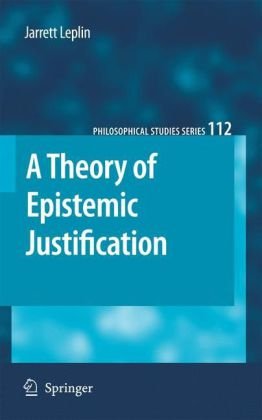

Most ebook files are in PDF format, so you can easily read them using various software such as Foxit Reader or directly on the Google Chrome browser.
Some ebook files are released by publishers in other formats such as .awz, .mobi, .epub, .fb2, etc. You may need to install specific software to read these formats on mobile/PC, such as Calibre.
Please read the tutorial at this link: https://ebookbell.com/faq
We offer FREE conversion to the popular formats you request; however, this may take some time. Therefore, right after payment, please email us, and we will try to provide the service as quickly as possible.
For some exceptional file formats or broken links (if any), please refrain from opening any disputes. Instead, email us first, and we will try to assist within a maximum of 6 hours.
EbookBell Team

4.3
8 reviewsThis book proposes an original theory of epistemic justification that offers a new way to relate justification to the epistemic goal of truth-conducive belief. The theory is based on a novel analysis of reliable belief-formation that answers classic objections to reliability theories in epistemology. The analysis generates a way of distinguishing justified belief from believing justifiedly, such that inerrant belief-formation need not be justificatory whereas systemic deception could be. It thereby respects the intuition that standards for justification must be accessible to the believer, while maintaining the essential connection of justification to truth.
The analysis shows how justification relates to, but is distinct from, evidence, rationality, and probability. It provides a unifying treatment of issues central to current debate in epistemology, including epistemic paradoxes, epistemic closure, skepticism, contextualism, virtue theories, the effect of luck on knowledge and justification, the interpretation of subjunctive conditions for justification, the conflict between internalism and externalism, and metaphilosophical evaluation of epistemological theories. There are further applications to metaphysics, the philosophy of language, the philosophy of science, and ethics.
The book will engage philosophers working in epistemology or related fields, and their graduate students.